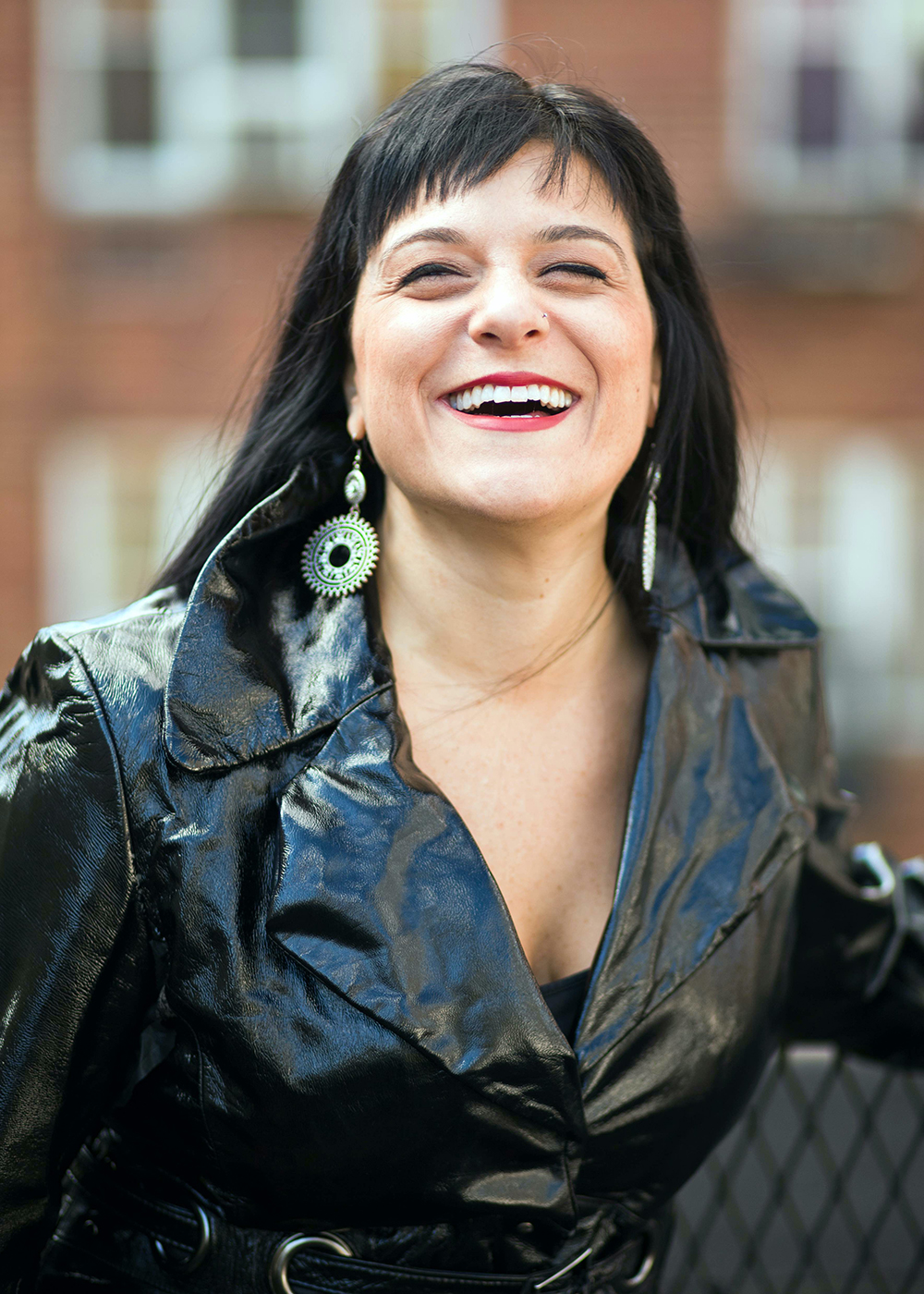
© James Daniel
Presented with a blunt question at the onset of an interview, Beth Morrison responds without hesitation. “I have been driven my entire life,” she says, speaking via Zoom from Boston. She has spent months of quarantine far from the New York City headquarters of Beth Morrison Projects, the namesake production company that has made the young impresario a force to be reckoned with on the global opera stage. Rest assured, she’s kept busy. “Being driven, for me, is seeing a goal and trying to get there as quickly as possible—and often not as easily as possible.”
This year, understandably, has presented obstacles and barriers the likes of which few performing arts institutions have encountered previously, let alone endured. For Morrison—who arrived in New York City in 2005 and built from scratch an opera and music theater production company that has nurtured dozens of noteworthy shows, including two recent Pulitzer Prize-winning operas—the need for drive and tenacity never have been greater.
Fortunately, she has never lacked for gumption. Raised in a theatrical family in Auburn, Maine, around 30 miles north of Portland, Morrison started voice lessons at age 10 and entered Boston University’s Tanglewood Institute at 17. After earning a master’s degree in vocal pedagogy at Arizona State University, she returned to the Tanglewood Institute as a teacher, and in 1999 became its director.
Determining over time that a career onstage was not her calling, Morrison began to envision a behind-the-scenes role facilitating the work of other creators and performers. Although she was trained in the canonical opera and song repertoire, her own aesthetic increasingly was shaped by adventurous theater productions she attended in Boston. Pursuing training in staging and production, she enrolled in the Yale University School of Drama where she studied with Benjamin Mordecai, a Broadway producer.
Mordecai introduced Morrison to Joseph Melillo, then the executive producer of the Brooklyn Academy of Music. Melillo in turn steered her to Linda Brumbach, whose independent company Pomegranate Arts produced and toured work by Philip Glass, Laurie Anderson, and other iconic artists. Working with Pomegranate Arts as part of her Yale studies—and citing Brumbach as a role model and mentor—Morrison conceived the novel idea of a nonprofit company not tied to any particular venue but focused instead on fostering and packaging shows ready for tour, to be staged by partnering institutions.
Starting with similarly adventurous New York City institutions like The Kitchen and Brooklyn Academy of Music, over the years Beth Morrison Projects has forged working relationships with major institutions such as LA Opera, the Kennedy Center, Krannert Center for the Performing Arts, and Chicago Opera Theater, as well as significant opera companies, arts presenters, and festivals around the globe. Along with HERE Arts Center in downtown New York, Morrison and her company established PROTOTYPE: OPERA l THEATRE l NOW, an annual winter festival that showcases new opera and music theater work from around the world. Their ninth annual season is newly announced for January 2021.
The company’s germinal spark, Morrison says, was “literally to change the field of opera—a lofty kind of hubris.” Her motivation came from not feeling connected to the kinds of stories being told in the conventional opera house. “I was spending a lot of time going to experimental theater, feeling really excited by an avant-garde aesthetic,” she says. “The germ of BMP really was: how do I create something in opera like what I’m seeing in avant-garde theater, in terms of relevance and production values? That’s what led me to forming a company that was about living composers.”
The list of creators with whom Morrison has worked speaks to the sureness of her instinct. Composers with proven track records, like Ricky Ian Gordon and David Lang, have burnished their reputations with works produced by BMP. More importantly, a new generation of operatic creators have flourished under her watch. David T. Little, Missy Mazzoli, and Paola Prestini have gone from collaborations with Morrison to working with major opera companies. Du Yun and Ellen Reid both won the Pulitzer Prize for works that Morrison’s company commissioned, developed, mounted, and toured globally. Dozens more span a gamut from modern opera to experimental cabaret. Women and artists of color have been prominent in the mix from the start.
The same instincts that led Morrison to invest in those artists and works also served her when COVID-19 laid waste to this year’s performing-arts seasons. Having documented many of the productions her company had mounted, Morrison streamed videos online to maintain visibility for artists and company alike. In the process, perhaps paradoxically, operas like Little’s Dog Days and Du Yun’s Angel’s Bone became available to exponentially more viewers than could have seen them live.
More recently, Morrison and her staff jointly conceived a series of intimate, immersive online performances, called Speakeasies, streamed for limited audiences with whom artists interacted directly. The first, directed by Ashley Tata, felt like a footloose cabaret; the second, helmed by mezzo-soprano, writer, and curator Peabody Southwell, resembled a kind of therapeutic retreat. Further innovations, including an online course for aspiring producers, are already underway, reflecting Morrison’s determination to keep her company not only solvent, but also relevant and proactive.
Remember: she’s driven. “I’m somebody who doesn’t take no for an answer, so if I set a goal for myself or my company, failure is not an option,” Morrison says. “Many, many times over the course of my career, it probably would have been easier for me to give up. But I just don’t have it in me.” •
Steve Smith writes about music for The New Yorker, the New York Times, and his own Substack newsletter, Night After Night, recently spun off from his ASCAP Deems Taylor Award-winning blog of the same name. He previously served as a writer and editor for National Sawdust, the Boston Globe, and Time Out New York.